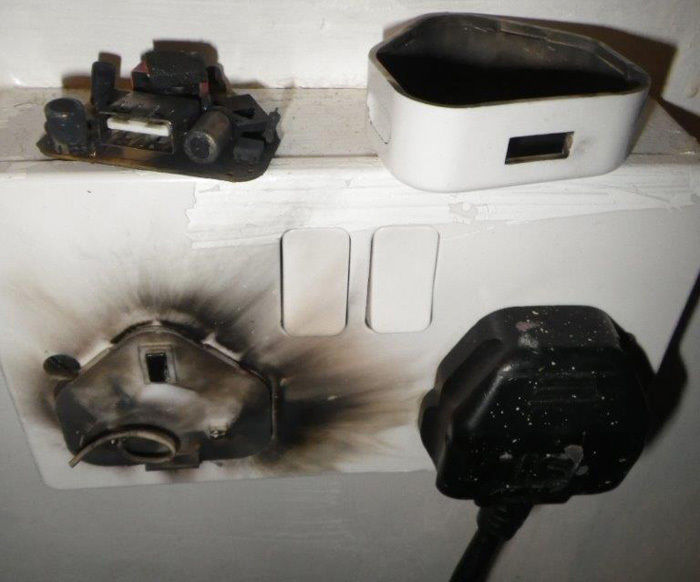🏠 Electrical Safety Tips Every Ayrshire Homeowner Needs to Know
- Dtec electrical
- Aug 8, 2025
- 3 min read
Updated: Aug 9, 2025
If you’re an Ayrshire homeowner, keeping your family safe means putting electrical safety first. From Greenock to Kilmarnock, simple checks like “faulty wiring inspection Ayrshire” and “licensed electrician Ayrshire” can help prevent costly accidents. In partnership with Electrical Safety First, here’s your all-in-one safety guide to help you protect your family and your home.
🛠 Common Electrical Hazards in Ayrshire Homes – and How to Avoid Them

Many older properties in Ayrshire, particularly in areas like Irvine, Largs, and Troon, still have outdated wiring systems that were never designed for today’s high-powered appliances. This can lead to hidden faults such as loose connections, undersized cables, or old fuse boards without modern safety devices. If you notice flickering lights, tripping circuits, or a faint burning smell near sockets, these are red flags that should not be ignored. Search terms like “old wiring replacement Ayrshire” and “consumer unit upgrade Scotland” are both popular and high-converting for homeowners looking to modernise safely.
Another risk is the misuse of extension leads. Plugging high-energy devices—such as portable heaters, tumble dryers, or kettles—into the same multi-socket adapter can overload the circuit. Instead, plug heavy-duty appliances directly into a wall socket and use extension leads only for low-energy electronics.
Moisture is another hidden danger, especially in coastal areas like Saltcoats or Ardrossan where sea air can corrode connections over time. Regularly checking outdoor sockets and lighting for wear, rust, or water ingress can save you from costly repairs. Adding weatherproof sockets with built-in RCD protection is a smart investment and can be installed quickly by a qualified electrician.
Lastly, many homeowners underestimate the danger of charging devices unattended. Lithium-ion batteries, found in e-bikes, smartphones, and laptops, can overheat and cause fires if left plugged in for long periods. Best practice is to charge during the day and unplug as soon as the battery is full.

🔍 1. Book a Professional Electrical Safety Check
Even if your home seems fine, hidden faults can develop over time. A qualified electrician can test circuits, sockets, and appliances to spot problems early—helping you avoid costly breakdowns and hazards.
🔌 2. Avoid Overloading Sockets & Circuits
Overloading can spark fires. Spread appliances across sockets, avoid daisy-chaining extension leads, and never run them under rugs.
🧰 3. Check Cords, Outlets & Appliances for Damage
Inspect cables for fraying, exposed wires, or burn marks. If a socket feels hot or sparks, stop using it and call a professional.
⚡ 4. Ensure RCD Protection in Wet Areas
Install Residual Current Devices (RCDs) in kitchens, bathrooms, and outdoors to reduce electric shock risk
💧 5. Keep Appliances & Cables Away from Water
Avoid using electrical items near sinks, baths, or outdoors when wet.
💡 6. Use the Right Light Bulbs
Always use bulbs with the correct wattage to avoid overheating.
👶 7. Childproof Sockets & Secure Cables
If children or pets are around, use socket covers and secure cables out of reach.
🚫 8. Never DIY High-Risk Electrical Work
DIY electrical work accounts for nearly half of serious shocks at home. Always hire a licensed electrician.
🔥 9. Test Smoke Alarms Monthly
Electrical faults are a common fire cause. Test smoke alarms monthly and replace batteries when needed.
🔋 10. Unplug Unused Appliances & Charging Devices
Never leave chargers plugged in overnight or when you’re out—especially e-bikes and lithium-ion






Comments